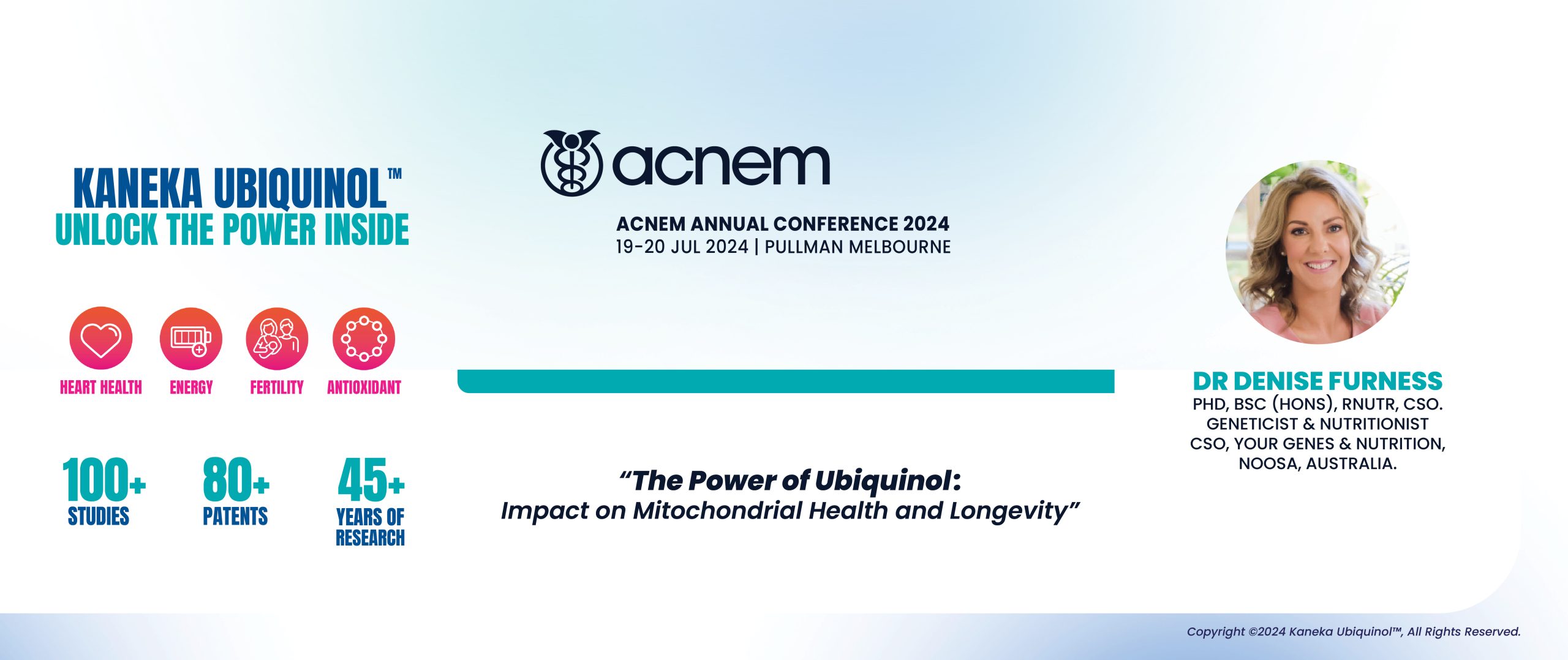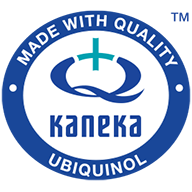
5 myths about heart health, busted
Sep 2021Recent Article
Fact or fiction?
When it comes to heart health, cardiovascular disease is still affecting 520 million people [1] around the world. In Australia, 16.6% of the total population is currently living with cardiovascular disease[2]. This continues to be the leading underlying cause of death in the country[3],not only amongst the elderly but also for people aged 45–64 [4].
Knowledge is power and understanding how to look after our heart is as essential as separating facts from fiction when it comes to our heart health.
Ahead of World Heart Day on 29 September, we spoke with Dr Ross Walker, an eminent practicing cardiologist with over 40 years experience as a clinician to discuss the top 5 myths surrounding heart health and help us separate truth from myth.
Myth 1: Heart disease is a man’s problem
Like men, women can be diagnosed with a range of heart conditions. The common risk factors for cardiovascular disease for Aussie women are high cholesterol, overweight and lack of physical activity. In fact, 90% have one risk factor for heart disease, and 50% have two or more [5]. Although cardiovascular disease develops 7 to 10 years later in women than in men, the risk increases significantly [6] after menopause. The truth is that most heart research has been done on male patients rather than females, but studies have shown [6] that women have gender specific symptoms when it comes to heart disease and failure.
What you can do whether you are a man or a woman is to get your heart checked every twelve months even if you are feeling fine. This way, if your blood pressure or cholesterol is not well controlled, you can commence treatment right away. The earlier you begin to treat these issues, the better.
Myth 2: After heart failure, exercise can be dangerous
After heart failure, physical activity can actually assist you in restoring your usual day to day activities. Although you may be worried about which exercises you can and can’t do, staying physically active reduces your chances [7] of having another heart attack. Being involved in a supervised cardiac rehabilitation program is recommended, especially if there is a prior history of heart disease or you have a very strong risk factor profile.
You can start by talking to your doctor and follow advice on how to gradually restore your fitness in a safe and suitable way. Walking, for example, is a great way to start. You can begin with a daily 5-10 minute walk and build up slowly to 30 minutes over several weeks.
Myth 3: It is okay to have high blood pressure as we age
As we age our cardiovascular system changes, and high blood pressure is more common in older people. As we age, our arteries become stiffer [8] causing our blood pressure to rise. However, this is not necessarily good for our health or heart. In fact, high blood pressure should be monitored regularly, as it increases the risk of suffering from stroke and a possible heart attack.
Myth 4: Good vs bad cholesterol
A major misconception around cholesterol is that one type is good and one type is bad. Incorrectly, low-density-lipoproteins (LDL), is labelled as “bad” cholesterol while high-density lipoproteins (HDL) is labelled as “good” cholesterol. The truth is both types of cholesterol carrying proteins contain “good” and “bad” elements. LDL and HDL both contain small and large components.
The large components of LDL and HDL are beneficial for normal body metabolism, keeping cholesterol away from our arteries and removing any excess from arterial plaque, which helps to prevent heart disease [9].
The small components of LDL and HDL promote fatty deposits in the artery wall. This is what can contribute to cardiovascular disease. The small components of LDL circulate in our blood and may build up in our arteries, forming plaque that may rupture, leading to blocked arteries [10]. On the other hand, the small components of HDL are pro-inflammatory [11].
Although heart disease & cholesterol have strong genetic components, it is also important to avoid foods containing trans fats and processed carbohydrates, eat a diet full of fresh fruits and vegetables, and conduct regular physical activity to help maintain good health. You may also need to check in with your GP to assess if your cholesterol levels are high and if you are deemed at high risk for a vascular event such as heart attack or stroke, the medications, such as statins or blood pressure therapy, may be necessary.
Myth 5: Supplements are of no benefit
While a good balanced diet and exercise are key to good health, our food today has lower nutritional value and we encounter many toxins in our day-to-day. Supplements can bridge the gap between the nutrients we need and the food that is lacking them.
For example, numerous studies have proven that Ubiquinol [12], the active form of Coenzyme Q10, helps promote heart health by providing the cellular energy needed [13] to keep the heart pumping well. Ubiquinol helps improve heart function by maintaining healthy levels of LDL cholesterol as well as the overall maintenance of a healthy cardiovascular system.
While this antioxidant is found in many foods – including oily fish, meats and whole grains – it is difficult to achieve the daily recommended dose without consuming excessive amounts, e.g. 14kg of sardines or 60 avocados! In this case, taking Ubiquinol in supplement form may help achieve the recommended daily dose to support optimal energy levels and cardiovascular health.
Seek advice from a healthcare practitioner to determine if supplementation is right for you. Always read the label and use only as directed.
This article was written by Dr Ross Walker.
[1] https://world-heart-federation.org/world-heart-day/about-whd/world-heart-day-2021/
[2] Australian Bureau of Statistics 2018, National Health Survey 2017-18, Data customised using TableBuilder
[3] Australian Bureau of Statistics 2020, Causes of Death 2019, cat. no. 3303.0, October
[5] https://www.heartfoundation.org.au/heart-health-education/risk-factors-for-women
[6] https://link.springer.com/article/10.1007%2Fs12471-010-0841-y
[7] https://onlinelibrary.wiley.com/doi/10.1002/ehf2.12225
[8] https://www.nia.nih.gov/health/high-blood-pressure
[10] https://www.hsph.harvard.edu/nutritionsource/what-should-you-eat/fats-and-cholesterol/cholesterol/
[11] https://iubmb.onlinelibrary.wiley.com/doi/10.1002/biof.1205
[12] https://www.ubiquinol.net.au/
[13] https://www.eurekaselect.com/161292/article
As appeared on Over60Sixty
You can share this by:
Keep up-to-date with Ubiquinol News
Ubiquinol Headlines

Investigating the Application of Ubiquinol in Mitochondrial Function
Oct 2024Category: Ageing, Antioxidants, cardiovascular health, Cholesterol, chronic fatigue syndrome, Endurance, Energy, Fatigue, Fertility, Fitness, Flu, Health, Health Industry, healthy ageing, Heart, Immunity, In The News, Kaneka, long covid, Lungs, Memory, Menopause, Mitochondrial health, myalgic encephalomyelitis, Nutrition, post pandemic, Stress, Ubiquinol, Vitamins, wellnessRead More
Kaneka Ubiquinol™ at VitaFoods Asia 2024, Bangkok
Sep 2024Category: Ageing, Antioxidants, Awards, cardiovascular health, Cholesterol, chronic fatigue syndrome, complementary medicine, Conference, Conferences, Endurance, Energy, Fatigue, Fertility, Fitness, Health, Health Industry, healthy ageing, Heart, Immunity, In The News, Kaneka, Memory, Menopause, Mitochondrial health, Nutrition, Stress, Ubiquinol, vitafoods, Vitamins, wellnessRead More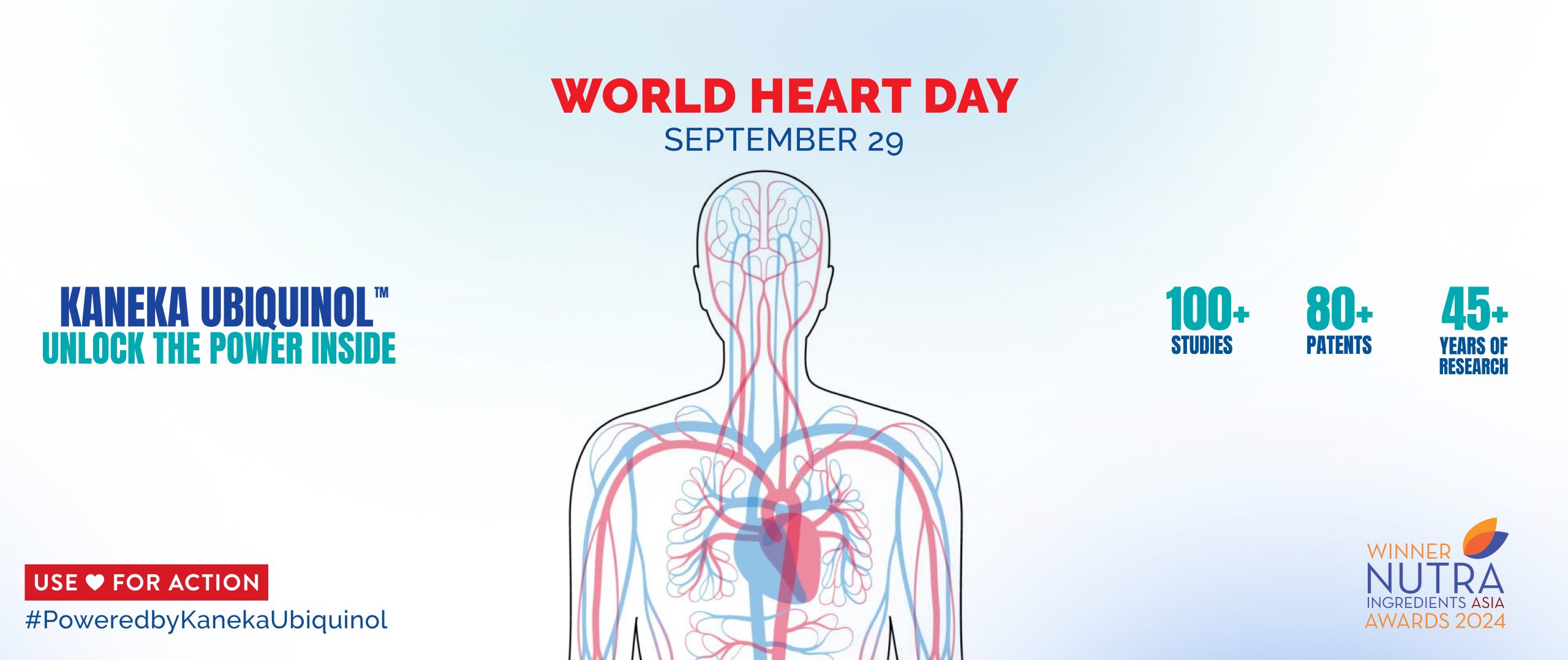
Use Heart for Action: Examining Solutions to The Global Cardiovascular Health Crisis
Sep 2024Category: Ageing, Antioxidants, cardiovascular health, Cholesterol, chronic fatigue syndrome, complementary medicine, dr ross walker, Endurance, Energy, Fatigue, Fitness, Health, healthy ageing, Heart, Kaneka, Nutrition, Stress, Ubiquinol, VitaminsRead More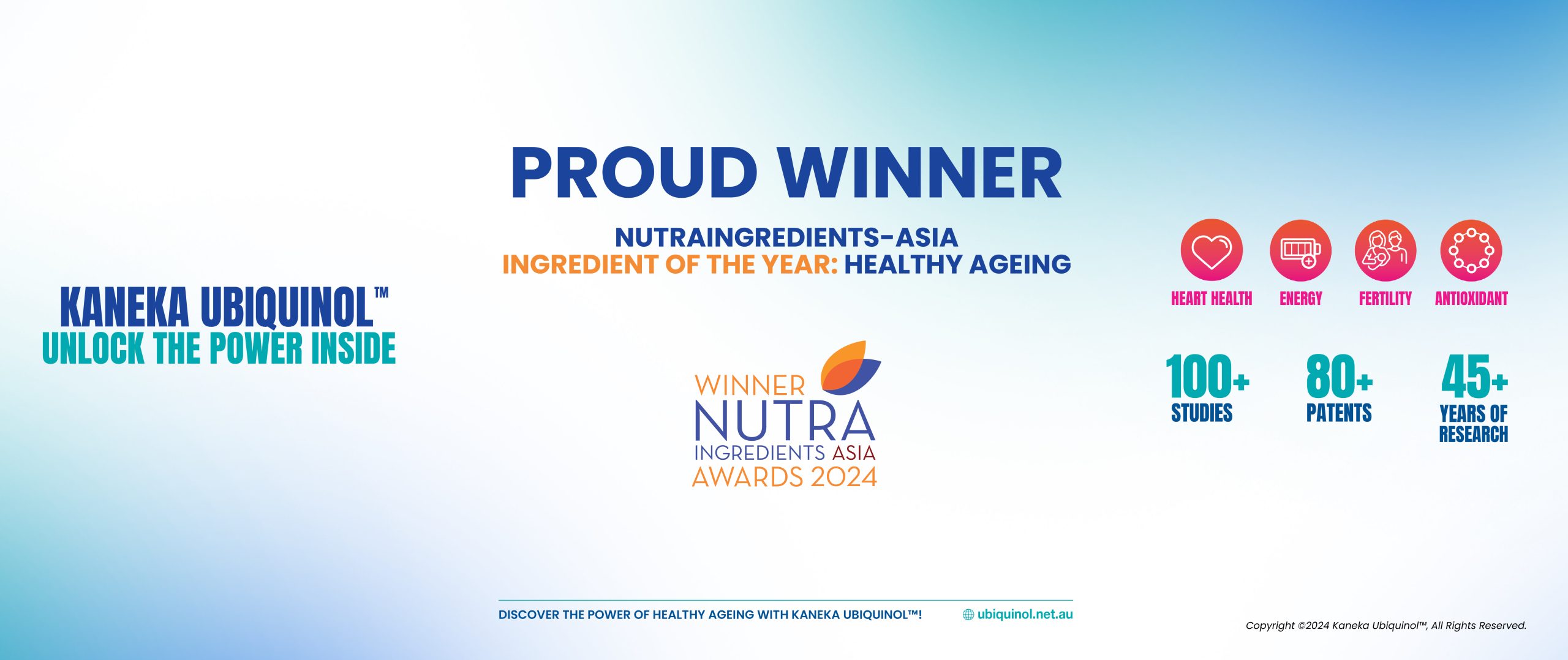
Kaneka Ubiquinol™ Wins the Prestigious Healthy Ageing Ingredient of the Year Award at NutraIngredients-Asia Awards 2024
Sep 2024Category: Ageing, Antioxidants, Awards, cardiovascular health, Cholesterol, chronic fatigue syndrome, Conference, Energy, Fatigue, Health, Health Industry, healthy ageing, Heart, In The News, Kaneka, Nutrition, Online, Print, Stress, Ubiquinol, vitafoodsRead More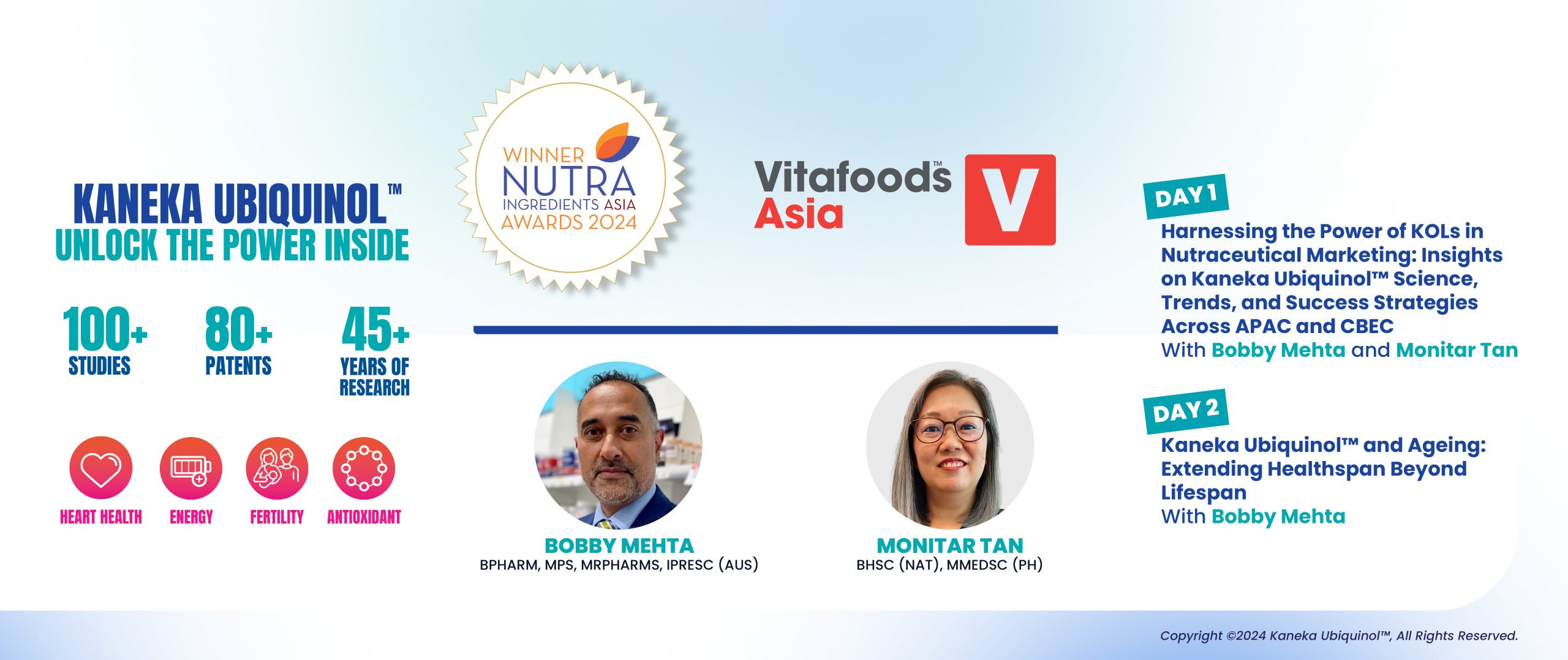
Kaneka Ubiquinol™ at VitaFoods Asia 2024
Sep 2024Category: Ageing, Antioxidants, Awards, cardiovascular health, Cholesterol, chronic fatigue syndrome, complementary medicine, Conference, Conferences, Energy, Fatigue, Fertility, Health, Health Industry, healthy ageing, Heart, In The News, Kaneka, Memory, Menopause, Mitochondrial health, Nutrition, Online, Stress, Ubiquinol, vitafoods, Vitamins, wellnessRead More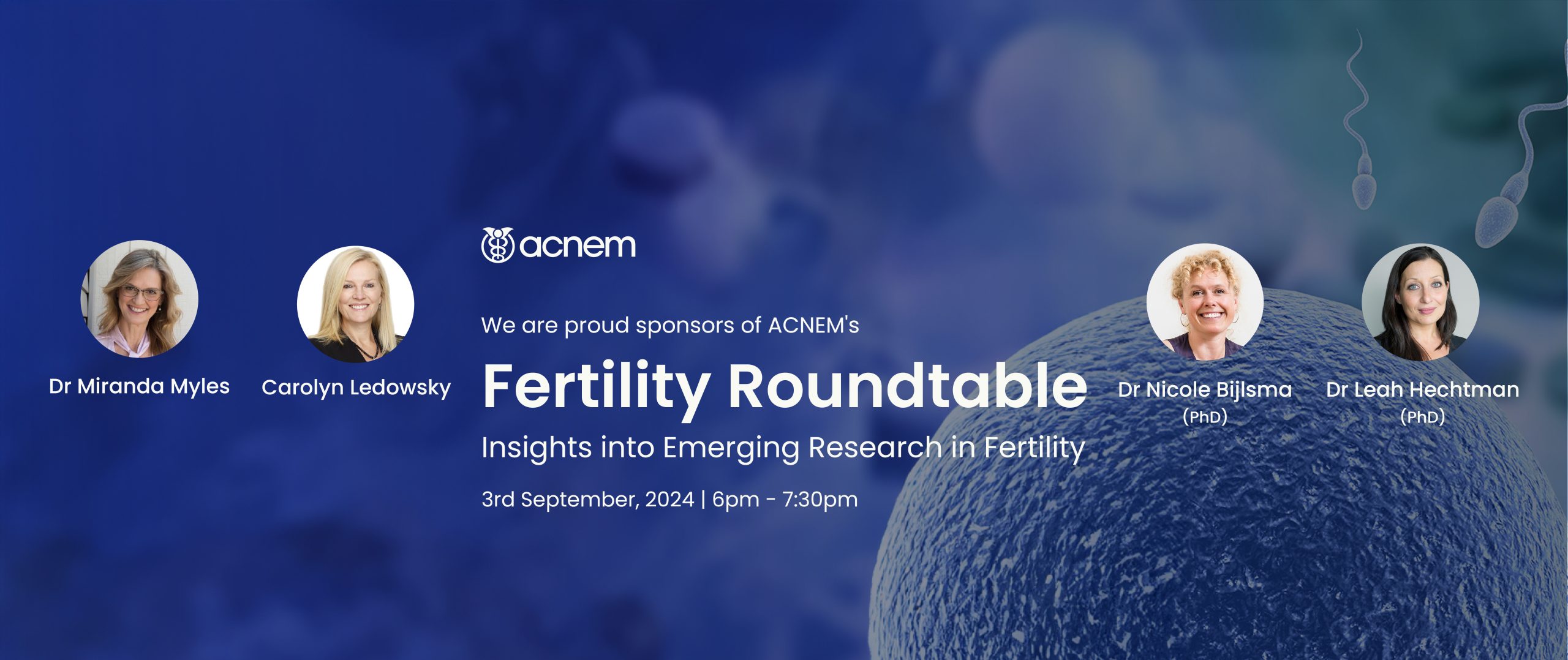
Kaneka Ubiquinol™ at ACNEM Fertility Roundtable
Aug 2024Category: Ageing, Antioxidants, Energy, Fatigue, Fertility, Health, Menopause, Mitochondrial health, Nutrition, Ubiquinol, VitaminsRead More
Kaneka Ubiquinol™ at PANC 2024 and Pharmacy Connect
Aug 2024Category: Ageing, Antioxidants, cardiovascular health, Cholesterol, chronic fatigue syndrome, Conference, Conferences, Energy, Fatigue, Fertility, Fitness, Health, Health Industry, healthy ageing, Heart, Kaneka, Memory, Menopause, Mitochondrial health, Nutrition, PANC, Stress, Ubiquinol, wellnessRead More